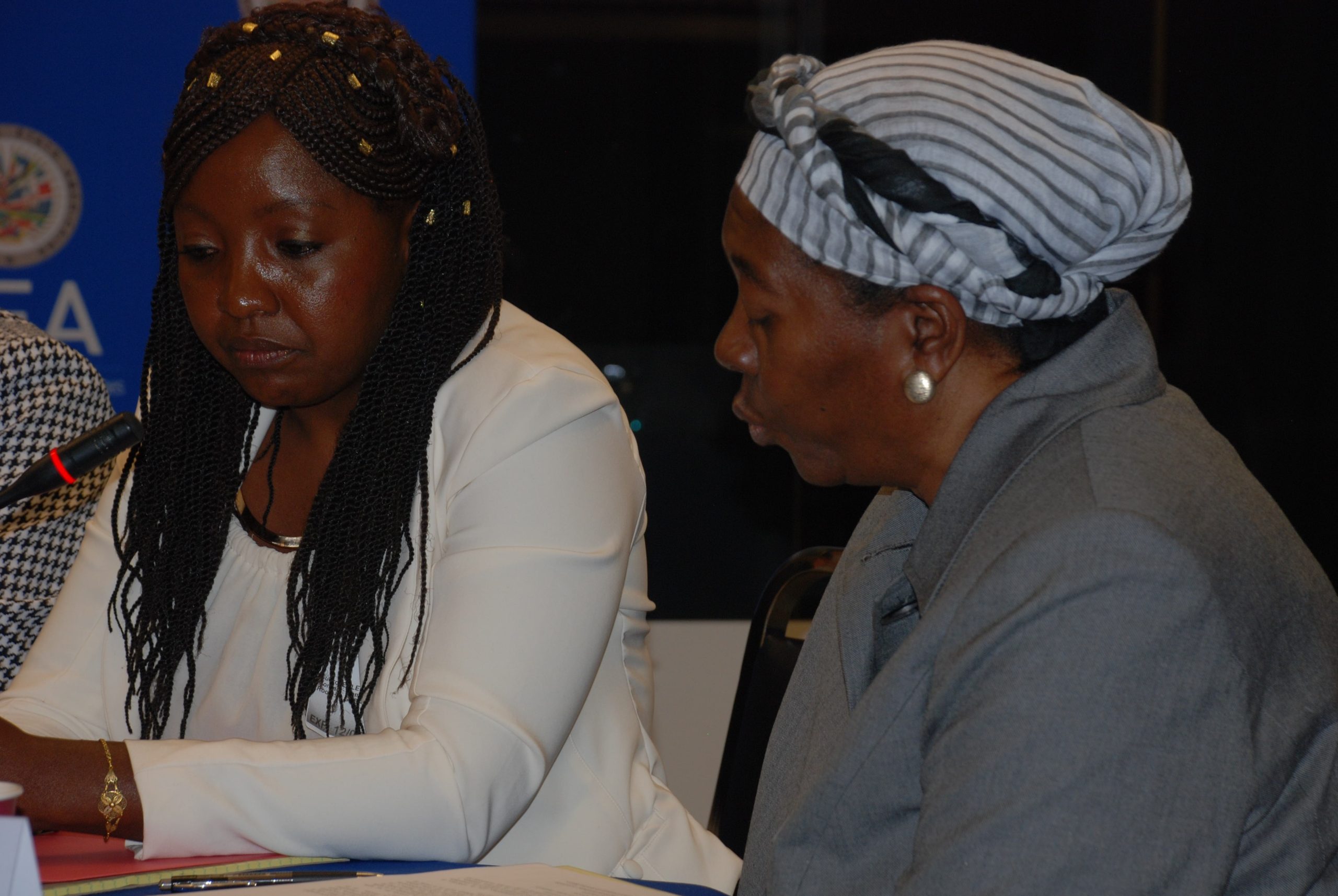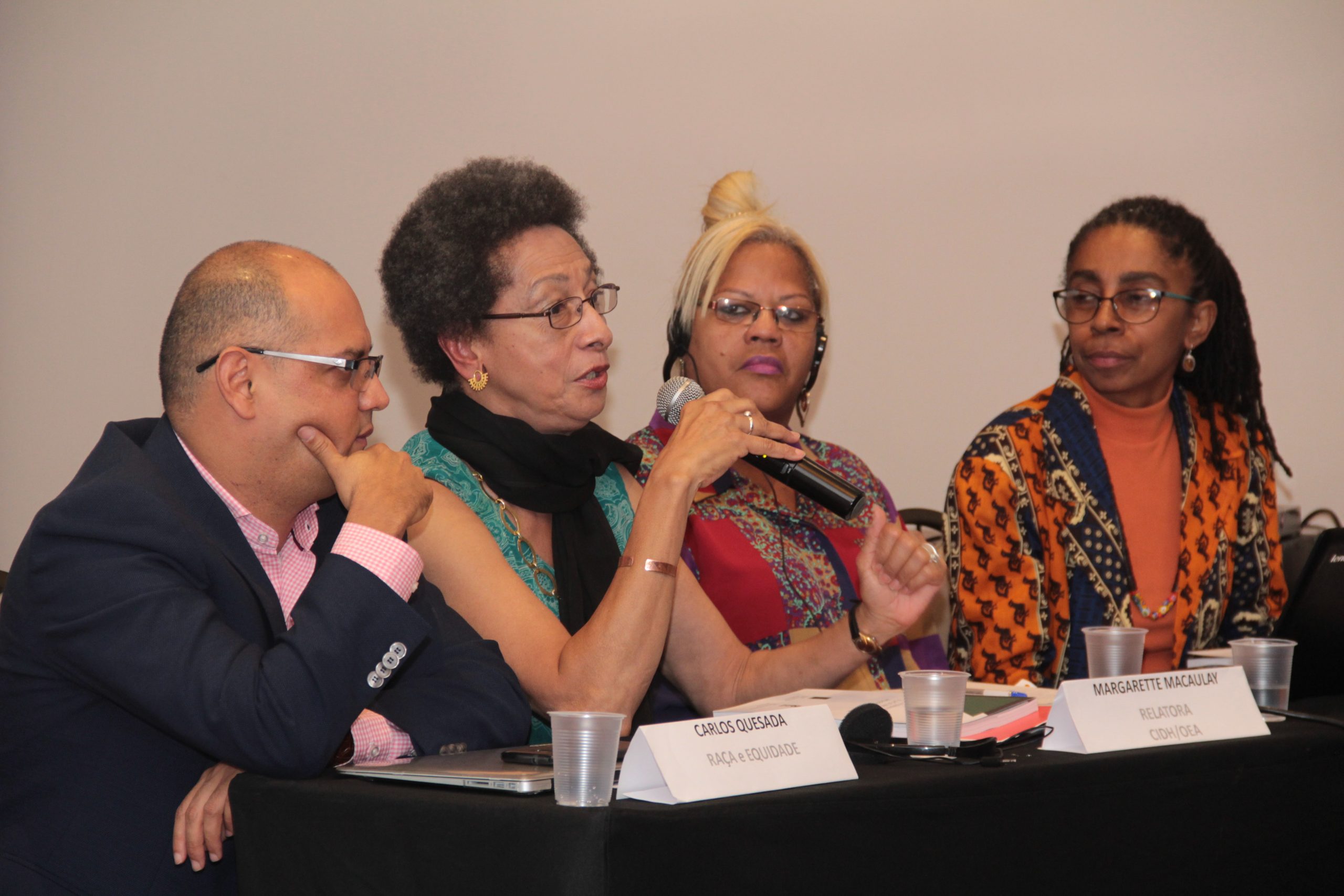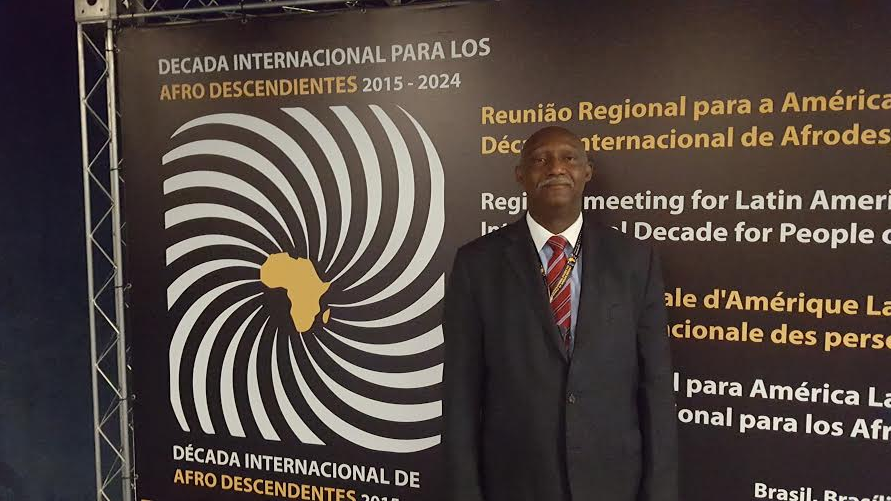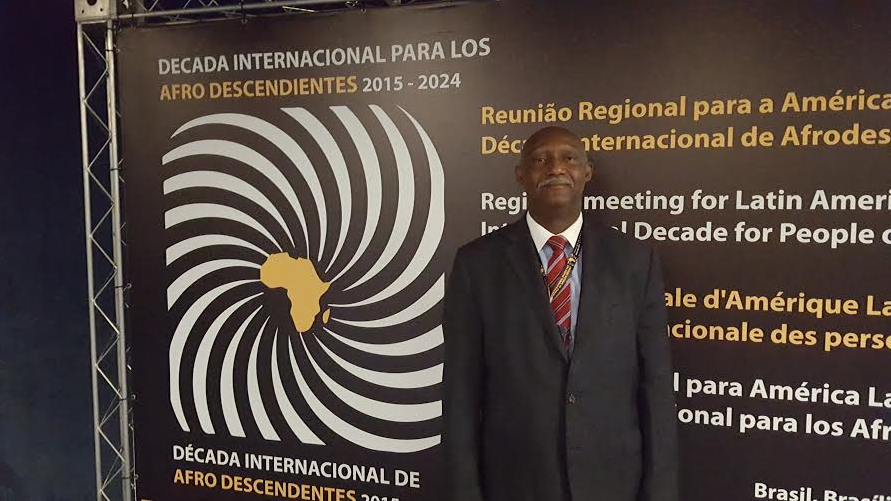Human rights defender Vilma Núñez asks the IACHR to demand respect for the right of association in Nicaragua
Jamaica, May 9, 2019. Yesterday, the President of the Nicaraguan Center for Human Rights (CENIDH, for its initials in Spanish), Vilma Núñez, asked the Inter-American Commission on Human Rights (IACHR) to address the State of Nicaragua in conjunction with the relevant bodies of the United Nations regarding the right to freedom of peaceful assembly and association in the country. That right that has been widely violated by the authorities during the crisis that has enveloped Nicaragua since April 2018.
Núñez’s request was made during the regional hearing entitled “Human rights, development and freedom of association” during the 172nd session of the IACHR. The hearing occurred five months after the CENIDH’s legal status was invalidated.
“Thirty years of work by CENIDH were practically eliminated on December 12, 2018, when the National Assembly, controlled by the Ortega-Murillo presidential couple, annulled our legal status,” Núñez said. “On the night of December 13, the Ministry of the Interior gave the order to break into our offices in Managua, and 60 policemen forcefully entered through the roof. They tied our guard’s hands and feet together, beat him, and forced him to remain under a desk for four hours. They destroyed and stole everything,” she added.
Nuñez explained that the Chontales office of CENIDH was also ransacked by the police. On December 14, the organization’s bank accounts were frozen.
Eight other NGOs in the same situation
In addition to having canceled the legal status of CENIDH, the National Assembly invalidated the legal status of eight other Nicaraguan organizations: the Let’s Do Democracy Association, the Center for Health Information and Advisory Services (CISAS, for its initials in Spanish), the Institute for Strategic Studies and Public Policies (IEEPP, for its initials in Spanish), the Segovias Leadership Institute, the River Foundation, the Institute for Development and Democracy (IPADE, for its initials in Spanish), the Popol Na Foundation for Municipal Promotion and Development, and the Communication Investigation Center (CINCO, for its initials in Spanish).
“Repression has an impact on the development of our country in all aspects, since development requires a basic dialogue between the government and civil society, a smooth cooperation between governors and the governed. CENIDH, as well as the other organizations legally invalidated, represented a legitimate expression of citizen participation for the defense and promotion of human rights,” Núñez emphasized.
The human rights defender also denounced that the National Assembly that outlawed nine NGOs has granted legal status to parastatal associations, including the one named “Defenders of the nation.” “This is the legalization of paramilitarism in our country,” stated Núñez.
Petition
Núñez asked the IACHR to accurately assess the status of violations of the right of association in Nicaragua and to include this information in its report on the country.
#IACHRHearings Regional: Human rights, development and freedom of association. Civil society: In Brazil the restrictions to freedom of association include criminalization, worrisome draft bills under consideration and the excessive use of force against protests. #IACHRinJamaica pic.twitter.com/FomaYufV9w
— CIDH (@CIDH) 8 de mayo de 2019
In addition, she requested that the IACHR demand that the State of Nicaragua, in conjunction with the UN Special Rapporteur on the right to freedom of peaceful assembly and association, respect the right to freedom of association, the right to collectively defend rights, and consequently, immediately restore the legal status of CENIDH and the other eight NGOs and return all of their assets.
Reactions
Other human rights defenders from Ecuador, Bolivia, Brazil, Venezuela, and Colombia also participated in the hearing to denounce violations of the right to freedom of association in their respective countries.
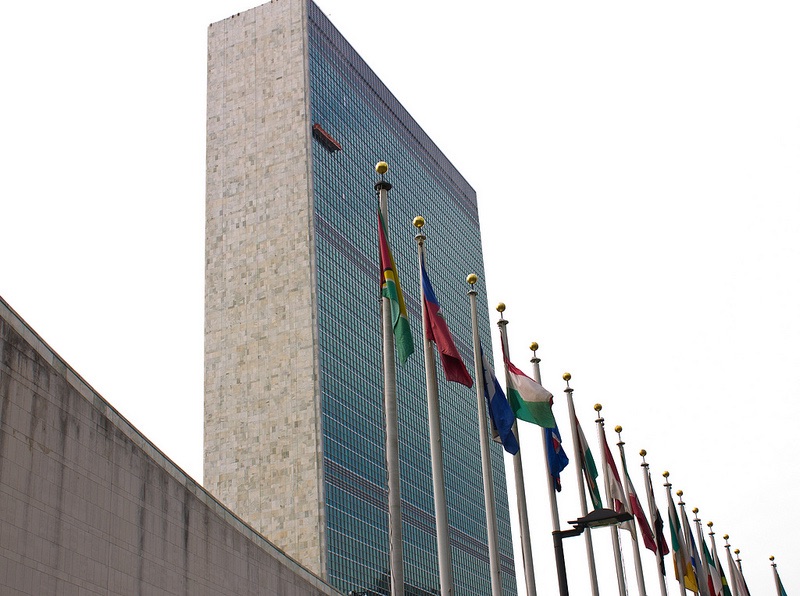
The UN Special Rapporteur on the right to freedom of peaceful assembly and association, Clément Nyaletsossi, urged defenders to send his office information that can be used as an input on his next report and called on States to eliminate any restrictions on this human right.
“Today we see how, in Venezuela and Nicaragua, the living conditions of citizens are deteriorating because civil society cannot offer their services. Civil society must stimulate and mobilize communities to fight against inequities,” he said.
During the hearing, the Special Rapporteur for freedom of expression of the IACHR, Edison Lanza, revealed that his office is working on a thematic report on social protest in the Americas. “The idea is to develop clear standards regarding the interaction and connection between freedom of peaceful assembly and association with the development of democracy, and economic, social, and cultural rights in the countries,” he explained.

